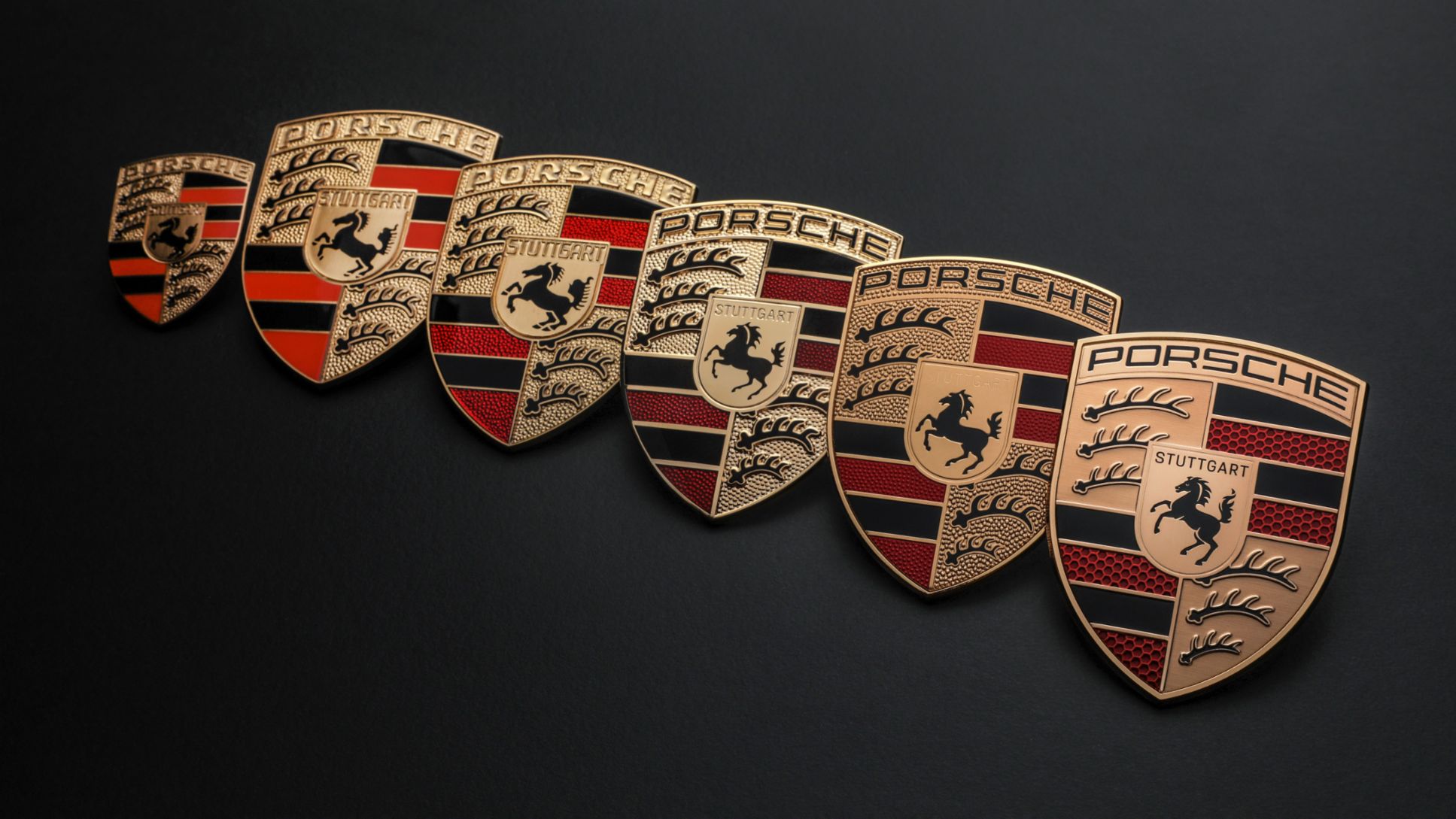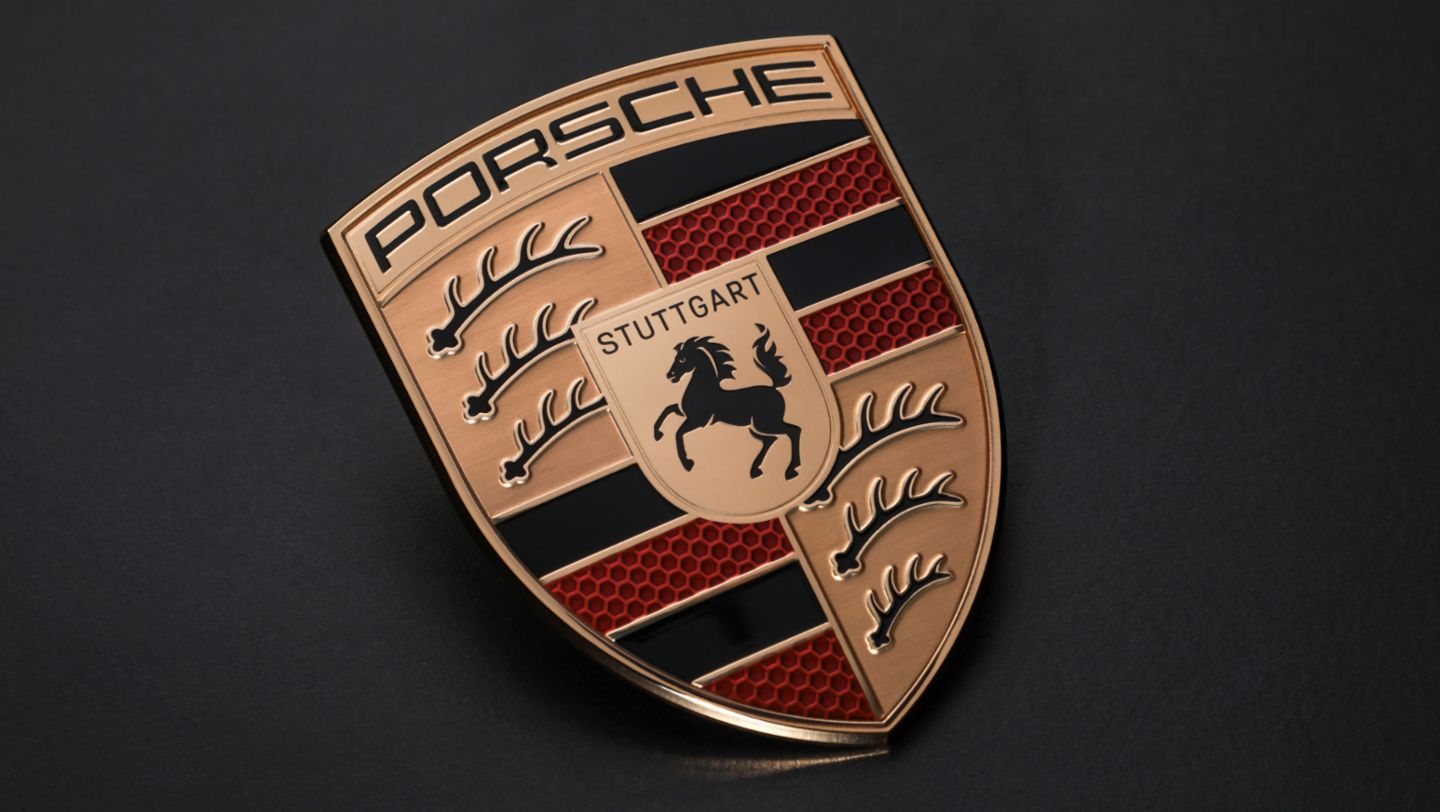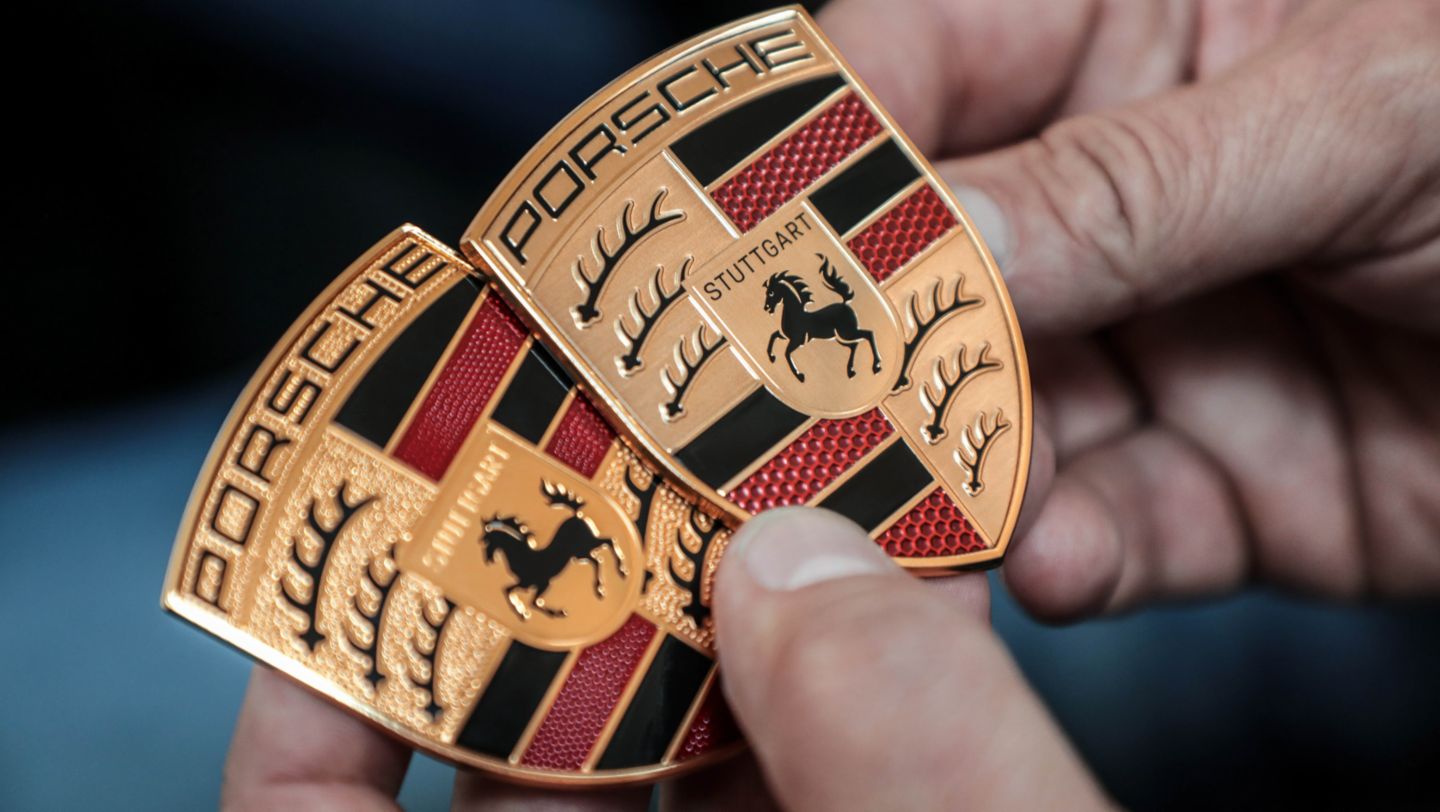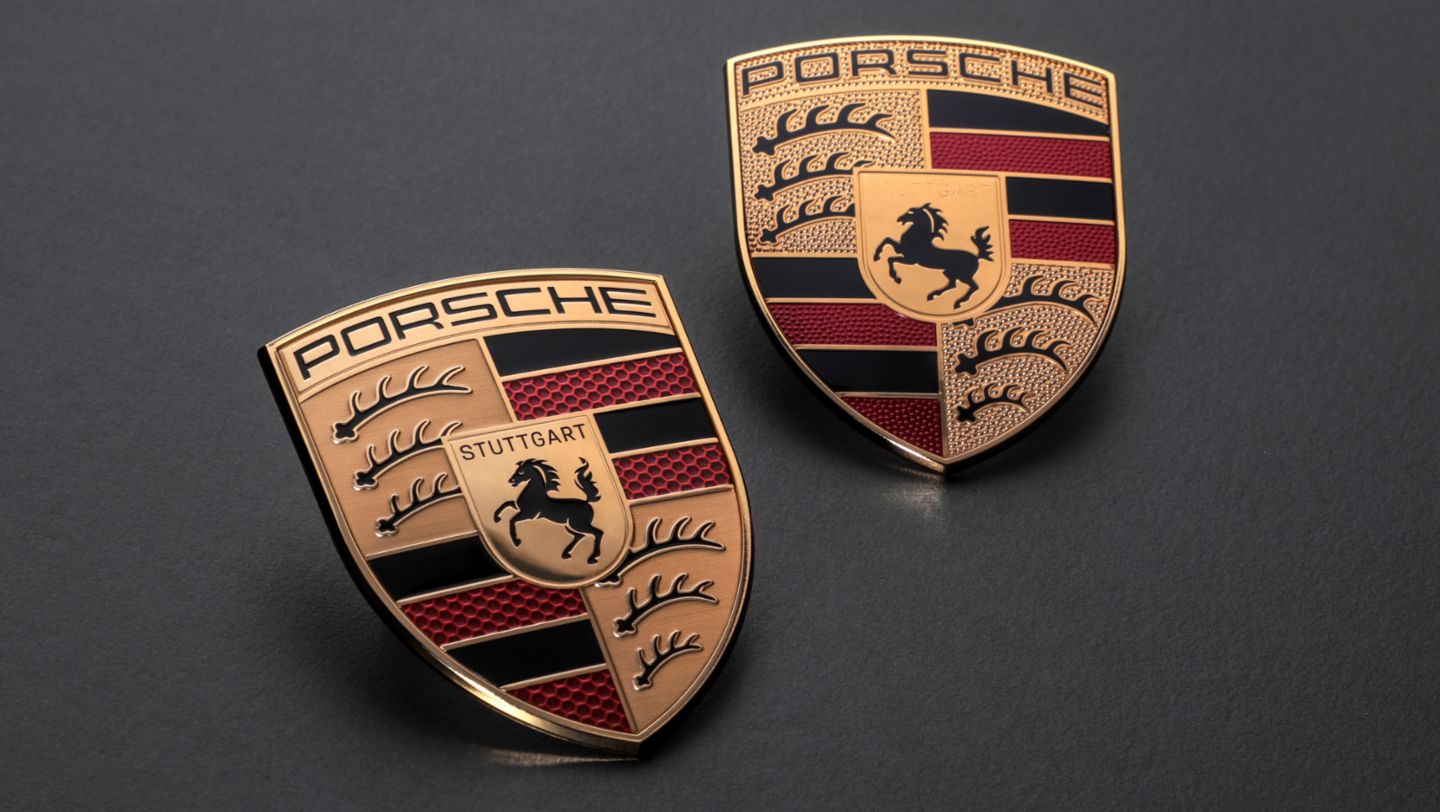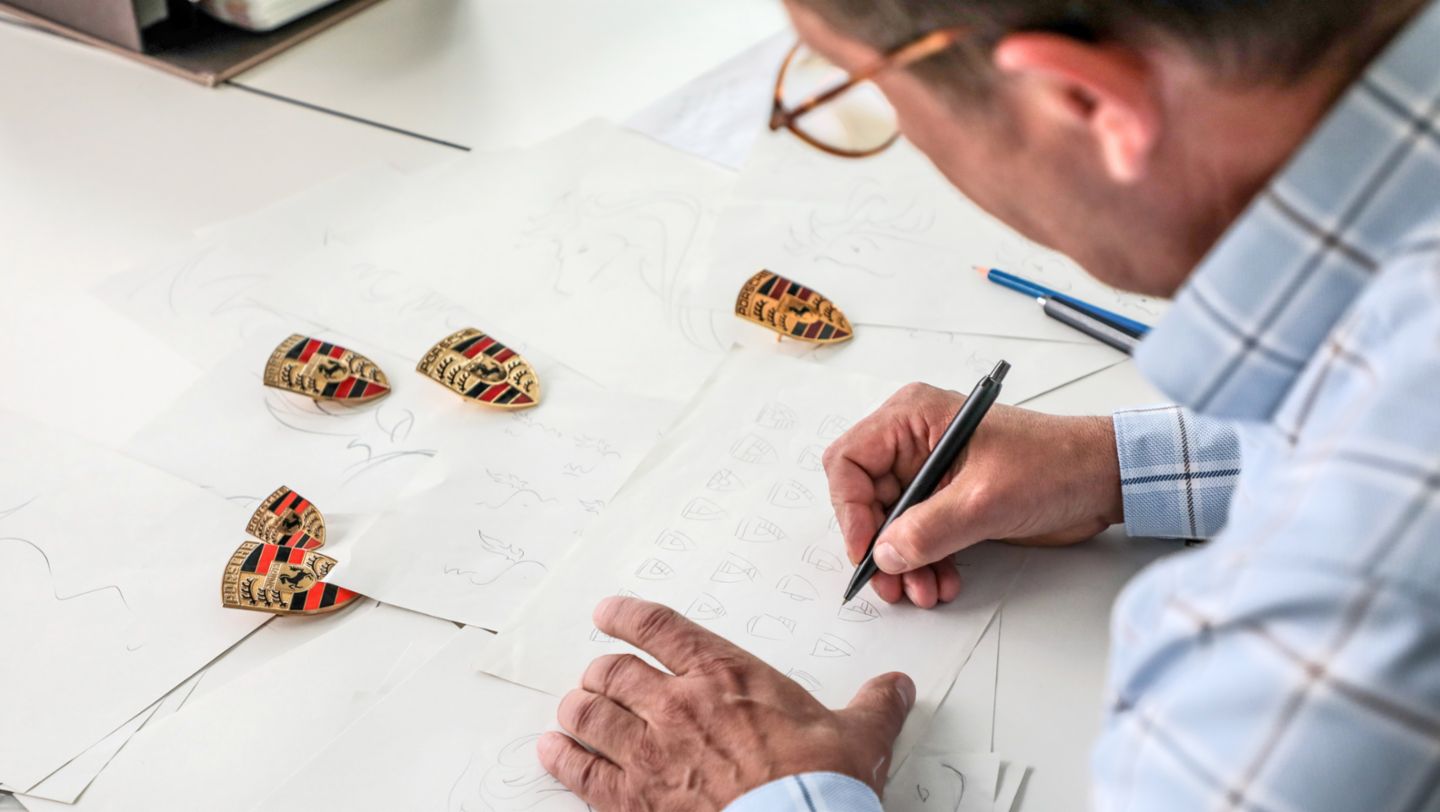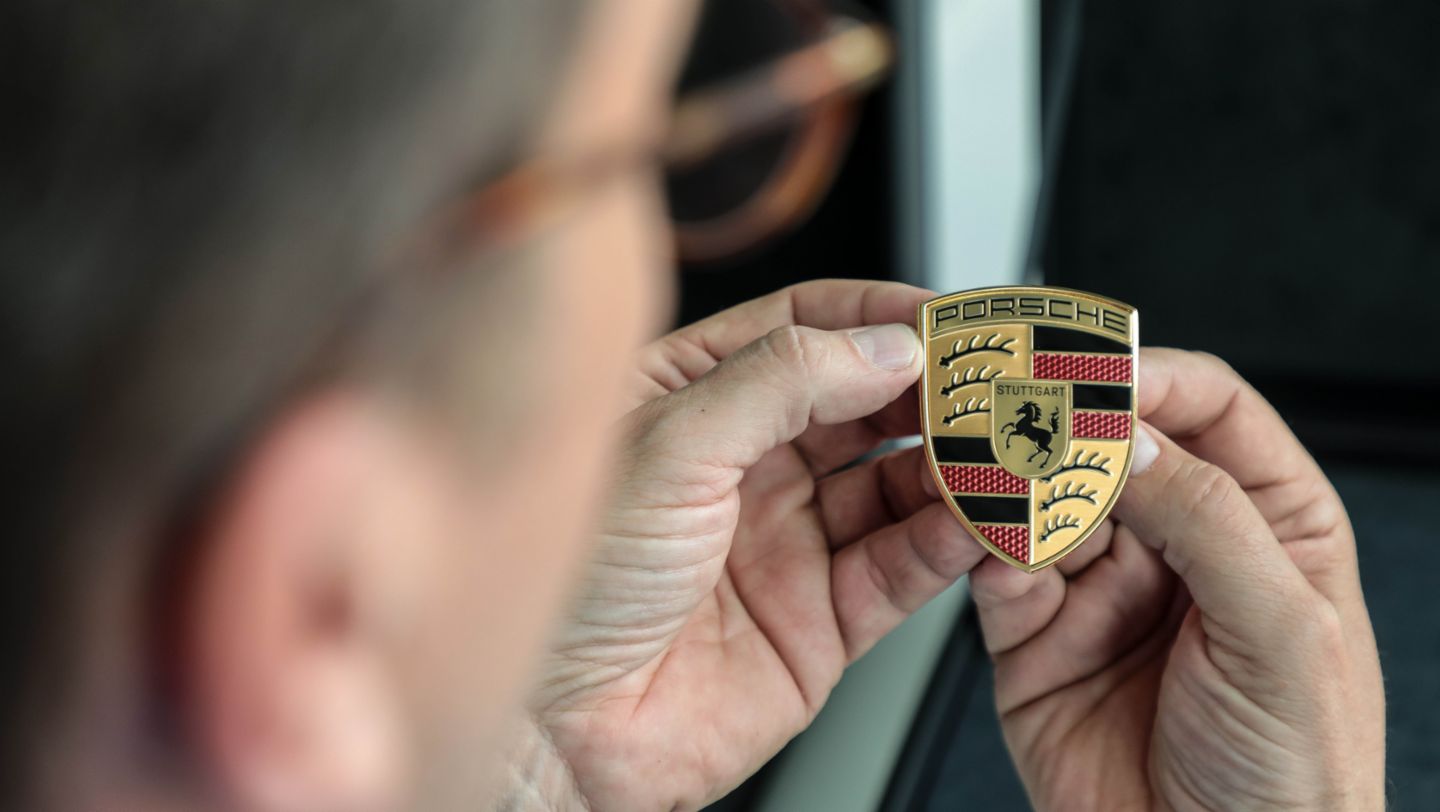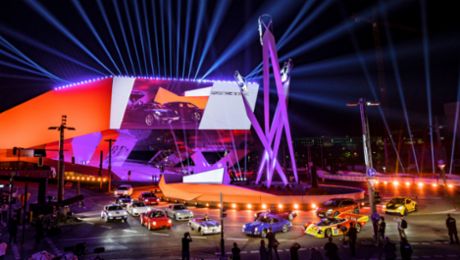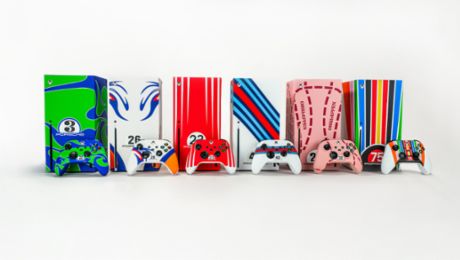- The sports car manufacturer has used the crest since 1952
- Modernised but easily recognisable
- Refined crest conveys Porsche's character
- All historic crests are available through Porsche Classic
With great attention to detail and in a three-year process, the designers of Style Porsche, together with the marketing experts of the sports car manufacturer, have carefully modernised the iconic logo. The introduction will start on the vehicle side at the end of 2023.
“The ‘75 years of Porsche sports cars’ anniversary was the occasion for us to rework this trademark,” says Michael Mauer, Vice President Style Porsche. “With its cleaner and more state-of-the-art execution, the refined crest communicates the character of Porsche. We have reinterpreted historical characteristics and combined them with innovative design elements such as a honeycomb structure and brushed metal. The result is an aesthetically ambitious arc that bridges the history and the future of the brand.”
Despite a number of revisions, the Porsche crest is still immediately recognisable. An important aspect, because this is one of the most famous trademarks in the world. With loving attention to detail over a three-year process, Joachim Paetzel, Specialist for Colour and Trim at Style Porsche, worked with design colleagues and marketing experts to carefully modernise the iconic logo.
“The time factor is very important in a maturing process such as this,” Paetzel describes the iterative procedure of designing the crest. “A trademark is not designed ‘off the cuff’ within a few days. You have to go back to it again and again, sometimes at longer intervals. The second or third look can reveal to you things that you want to optimise, until it finally achieves a harmonious, natural effect. Only then can you say with satisfaction: ‘This is exactly how it has to be!’”

It was also important to the designers to match precisely the 2D and 3D versions of the crest. The trademark is not only experienced in its physical form on the body and in the interior of the sports car. It must also be effective in the brand identity in communications or at the point of sale. The introduction will start on the vehicle side at the end of 2023.
“The Porsche crest is an unmistakable symbol and simultaneously a central element of our brand identity,” says Robert Ader, Chief Marketing Officer at Porsche AG. “For this reason, the modernised crest became the occasion for us to rework our brand design. We will be using the crest in a more targeted way to underline emotional highlights. At the same time, the Porsche lettering will take on even greater significance." The adaptation of the brand identity will start on the occasion of the 75th Porsche sports car anniversary show from 8 June 2023.
Porsche has used the crest since 1952. The trademark was updated in 1954, 1963, 1973, 1994 and 2008. All of the historical crests are available worldwide from Porsche Classic for vintage and new cars within the original parts range. Some of them are manufactured in elaborate processes, as new versions based on original drawings and using special tools.
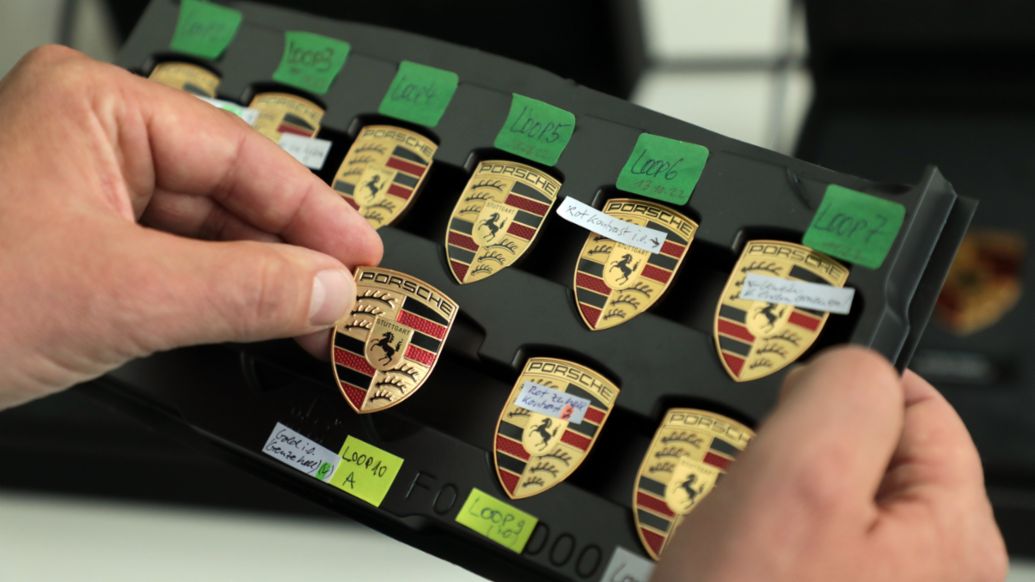
Did you know ...
… that the rising horse in the middle of the Porsche crest is from the seal of the city of Stuttgart? The name has its origin in horse breeding (‘stud garden’). In combination with the city’s name above it, Porsche thus identifies with its home in Swabia.
… that the colours black and red and the stylised deer antlers were taken from the traditional crest of Württemberg-Hohenzollern?
… that the first search for a Porsche trademark was through an open competition? In March 1951, the Stuttgart doctor and art collector Ottomar Domnick launched a competition at German art academies. The prize offered for creating a logo was 1,000 German marks. However, none of the designs submitted measured up to what the Porsche management had in mind.
… that American car importer Max Hoffman also played a role in the creation of the crest? He talked to Ferry Porsche about the idea of a logo during his visit to the US at the end of 1951. On 27 December 1951, Porsche made a note: “Steering wheel rim decorated with ‘Porsche’ and the Stuttgart crest or similar.”
… that the original Porsche crest was drawn by Franz Xaver Reimspieß? The designer, a very talented draughtsman, had presumably also designed the Volkswagen logo in 1936. Early in 1952 he sketched the first version of the Porsche crest.
… that the Porsche crest has been protected as a trademark since 1952 (DE 657728)? It may only be used commercially with the express consent of Porsche AG.
… that the crest appeared on cars four years after the Porsche lettering? At the end of 1952 the logo first appeared on the steering wheel rim, and in November 1954 it was integrated in the handle on the bonnet of the 356 Speedster. From 1959 it also adorned the hubcaps of the sports cars from Zuffenhausen.
… that the new release of the classic Porsche crest was subjected to extensive testing in order to meet the highest quality standards? These included a climatic cycle test at the Porsche Development Centre in Weissach.
… that on 1 April 2019, Porsche presented the world’s first crest with an integrated QR code, the so-called QREST?
